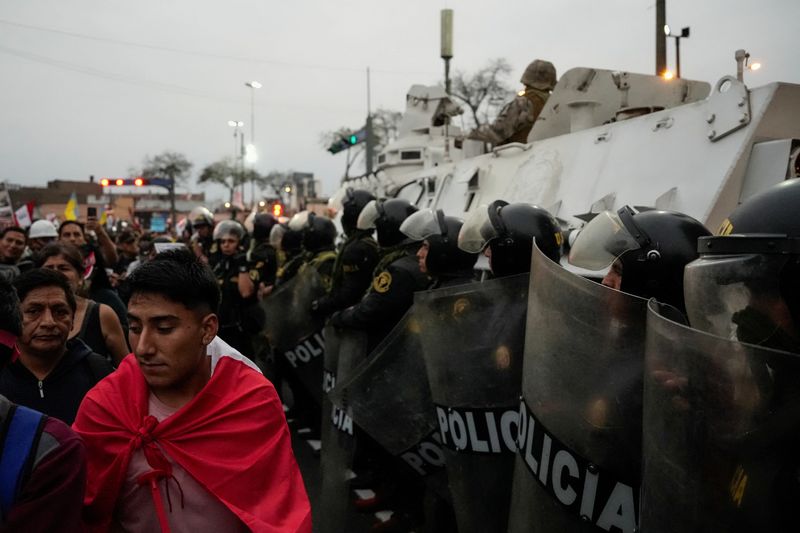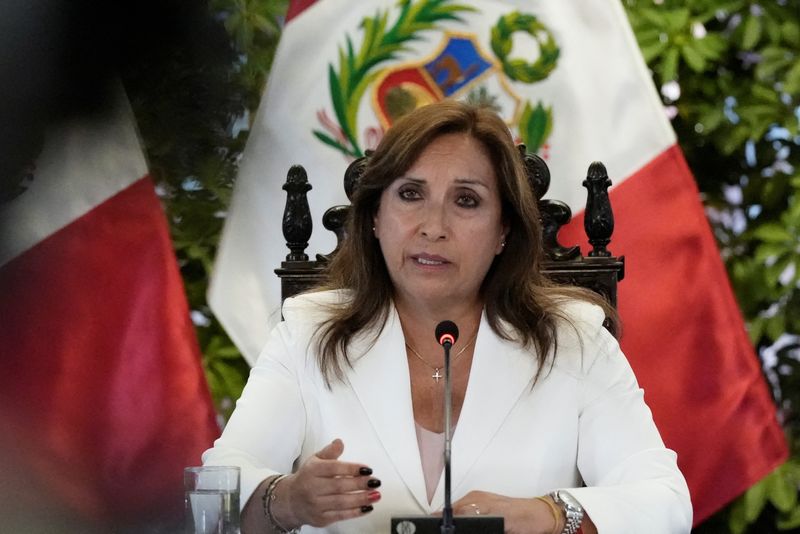By Marco Aquino
LIMA (Reuters) -Thousands of anti-government protesters took to the streets in Peru on Wednesday, part of a new round of marches organized by groups opposed to President Dina Boluarte's eight-month-old administration, as police deployed to guard government offices.
Local television showed several thousand protesters affiliated with left-wing groups and unions peacefully marching in the capital Lima, while isolated incidents with police were reported in an Andean region where social conflicts have often flared.
Many Peruvians accuse Boluarte and her allies of illegitimately removing and jailing her leftist predecessor Pedro Castillo, which led to angry and sometimes violent protests through last March that claimed 67 lives. The unrest comes during longstanding disgust over rampant poverty and deep inequality that has persisted even as the nation has grown wealthier.
Some 24,000 police officers were deployed throughout the country, according to officials, as authorities braced for a so-called "third takeover of Lima."
Ground transport officials said protesters blocked six highways by early afternoon on Wednesday, mostly in southern Arequipa and Cusco regions.
"We will respect the right of people to protest, but if these turn violent we will make rational use of force to impose authority," Lima police chief Roger Perez told reporters.
Jorge Pizarro, a spokesperson for one of the protest organizers, pledged that demonstrations will be forceful and peaceful.
"We will not seek a confrontation with the police," he said.
But in the Andean town of Huancavelica, protesters set the door of a government building ablaze. Police quickly doused it and then dispersed the crowd with tear gas, according to local television.
Protesters demand Boluarte's removal, the closure of the unpopular right-wing dominated Congress, early elections and a new constitution.
Boluarte, whose public approval has also plummeted, is under investigation for crimes of "genocide, aggravated homicide and serious injuries" related to the violence in previous marches.
Her government has labeled the protests a threat to democracy.

Airports in Lima, Arequipa, Cusco and Puno - where some of the fiercest clashes occurred during the earlier protests - are restricting entry. In-person classes will be suspended at schools in several regions.
Peru, the world's second-largest copper producer, could also face disruptions along its key mining corridor, where according to environmental groups, communities will support the protests.
